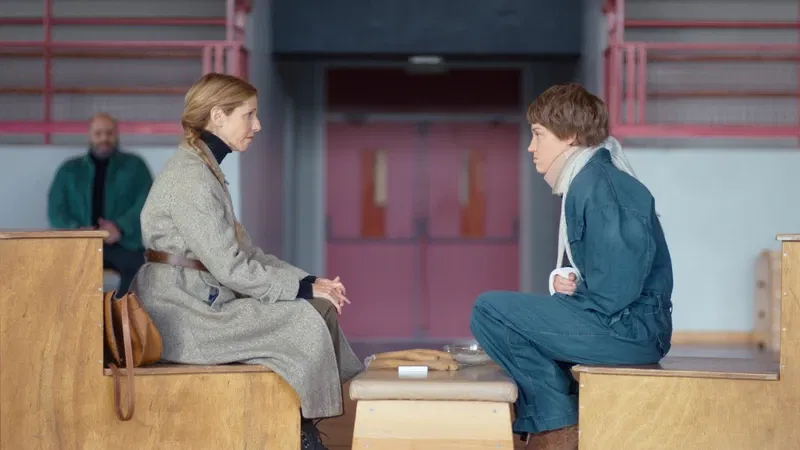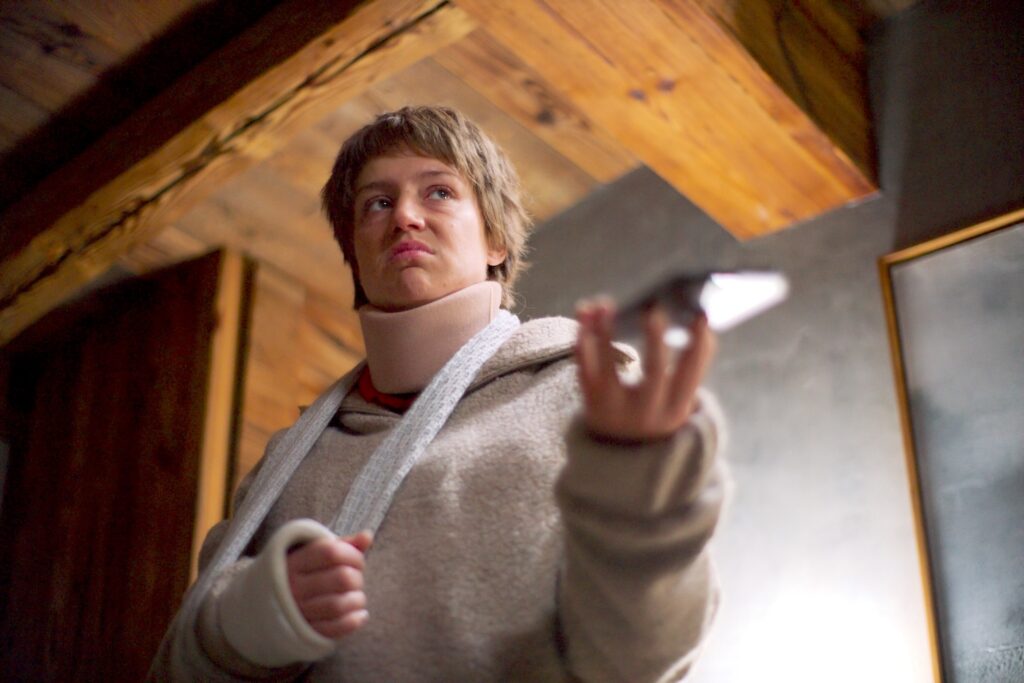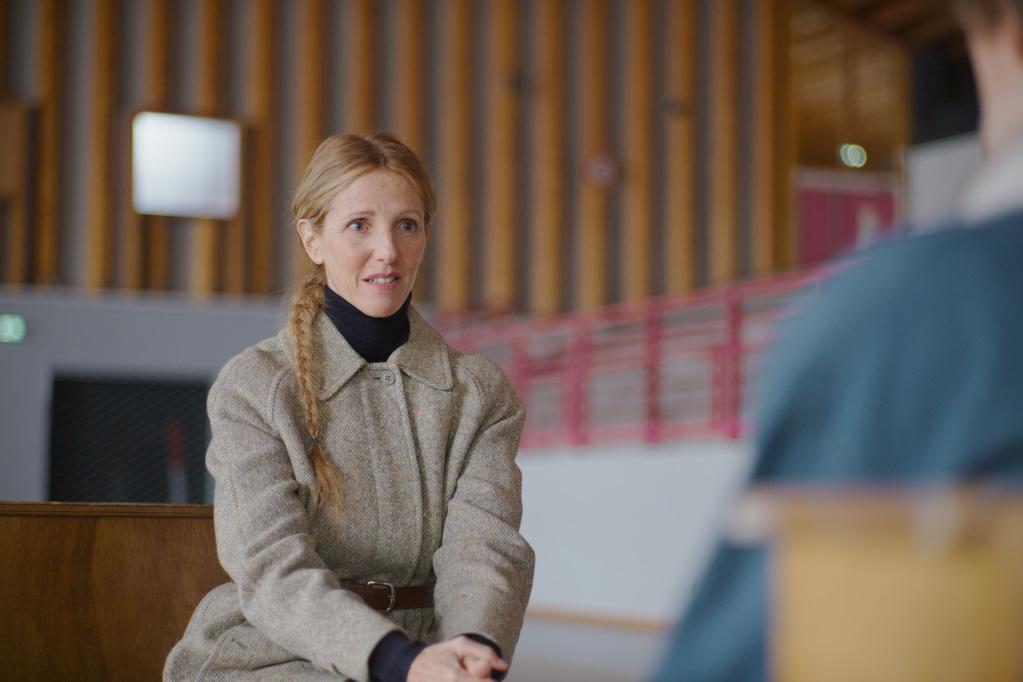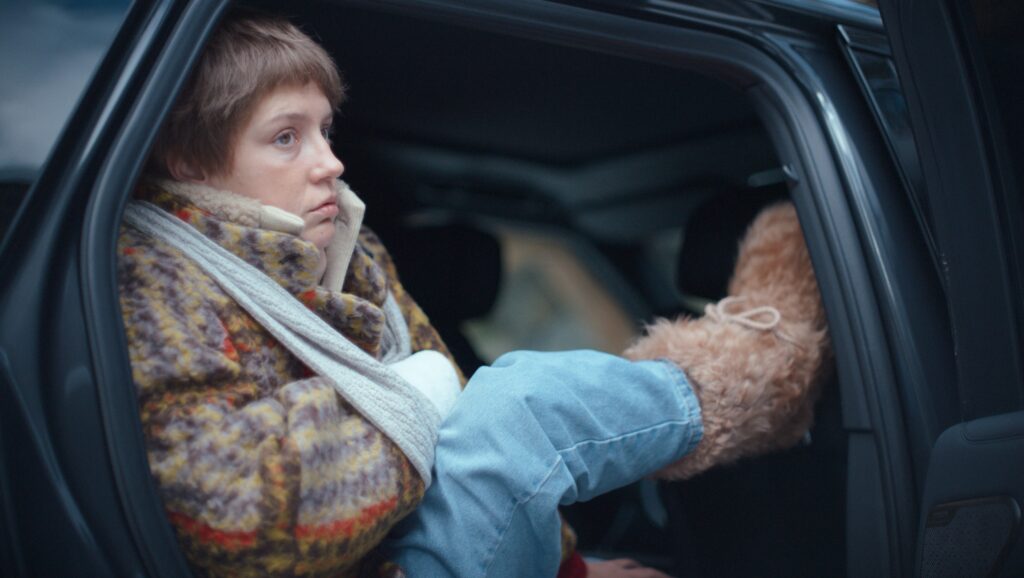French filmmaker Quentin Dupieux is one of the most singular voices working in comedy right now, creating satires that are often unclassifiable and incomparable to the work of anyone else. His latest film, The Piano Accident, is no exception, taking its high-concept premise and using it effectively to deliver a challenging, insightful satire.
The Piano Accident Review
The film follows a controversial influencer who takes refuge in a secluded cabin after a serious accident filming a video, as she finds her would-be tranquil oasis disrupted by a journalist’s blackmail scheme. But as is often the case with Dupieux’s work, even if you think you know where this film is going, it will defy those expectations.

In many ways, The Piano Accident is one of Dupieux’s sharpest satires in quite a while. Whereas the themes he explores are typically a little broader and more societal, here he sets his sights on one incredibly specific class of people: influencers. While this may hurt the film in the long run — it’s unlikely to be as timeless as some of the filmmaker’s greatest farces — it also feels spot-on to the time we live in.
This theme also lends itself incredibly well to Dupieux’s signature absurdist style of humor. Even though the actions of the influencer character are certainly over-the-top, her exaggerated nature is an effective commentary on how utterly ridiculous the online generation can be. Few comedic filmmakers have the skill to pull off this balance between zaniness and sincerity, but as one of France’s foremost satirical filmmakers, Dupieux does so with ease.
Yet, there is nuance to Dupieux’s depiction of this character. He’s not painting her — or the internet itself — in broadly villainous strokes as so many other satires of online culture have. Instead, he’s interested in exploring how this character is a vulnerable person who was exploited by the online masses, becoming something borderline monstrous because of a combination of her own hubris and the pressure of thousands of anonymous people through the web.


It’s a lot to bite off for a film that’s under an hour and a half in length, and like many of Dupieux’s other films, The Piano Lesson doesn’t serve as a full and complete essay on its ideas but instead a spark that will provoke deeper thought. And considering the violence in this film — short, but effective, in a way he hasn’t really employed since Deerskin — this is certainly one of his more provocative works by design.
The film also benefits from the tremendous work of lead actress Adèle Exarchopoulos. This is the third film she has made with Dupieux (after Mandibles and Smoking Causes Coughing), and it is clear that this collaboration has reached an extremely effective shorthand. However, The Piano Accident is not only the finest of her three roles from the director, but one of the best in her career as a whole, stretching her outside of her usual comfort zone. Her character here is decidedly not alluring, and she knocks it out of the park, being more off-putting than you ever imagined she could be.

And despite the relatively contained storyline — most of the film taking place in a single location or through flashbacks — The Piano Accident manages to feel like one of Dupieux’s grandest films yet. This is largely thanks to the cinematography (lensed by himself), making use of the remote, snowy location to make us feel the sense of isolation, both physical and social, the character is experiencing. Dupieux’s score as Mr. Oizo is also phenomenal in its simplicity, with the dissonant sounds being particularly effective in the opening and finale.
Is The Piano Accident worth watching?
If you are a fan of the unique comedic stylings of Quentin Dupieux, The Piano Accident is sure to be one of the most intriguing and provocative comedies you see this year. With every aspect on-point, from the sharp writing to the technical aspects and performances, this is one of his sharpest works in quite a while.
The Piano Accident screened at the 2025 edition of Fantastic Fest, which runs September 18-25 in Austin, TX.




